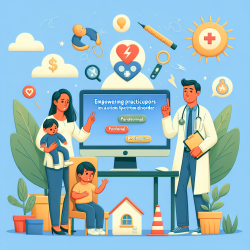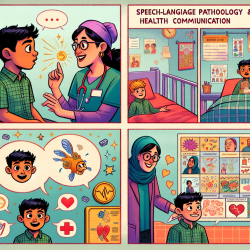The journey from adolescence to adulthood is a challenging one for individuals with Autism Spectrum Disorder (ASD) and their families. Recent research, "Functional Outcome in Late Adolescence/Early Adulthood of Patients with Autism Spectrum Disorder and Its Relationships with Parental Burnout and Depression: A Preliminary Multi-Center, Cross-Sectional Study," provides valuable insights into this transition. The study highlights the critical need for support and intervention to improve functional outcomes and reduce parental burnout and depression.
Here are some key findings from the study:
- Only 5.4% of the sample reported “good” or “very good” outcomes in adulthood.
- Common psychiatric comorbidities included intellectual disabilities and attention-deficit/hyperactivity disorder (ADHD).
- Maternal burnout and depression scores were significantly higher compared to fathers.
- Factors such as receiving vocational support, living in an intact family, and having a mother with a higher level of education were positively associated with better functional outcomes.
For practitioners, these findings underscore the importance of comprehensive, data-driven approaches to therapy and support. Here are actionable steps to consider:
1. Early and Ongoing Intervention
Early diagnosis and intervention are crucial. Ensure that children with ASD receive appropriate educational and therapeutic support as early as possible. Continuously monitor and adjust interventions to meet their evolving needs.
2. Vocational Training and Support
Vocational training plays a significant role in improving functional outcomes. Develop programs that focus on skill-building and employment opportunities for adolescents and young adults with ASD.
3. Family Support and Education
Parental burnout and depression can negatively impact the entire family dynamic. Provide resources and support for parents, including counseling and stress management techniques. Educate families about ASD to help them better understand and support their loved ones.
4. Collaborative Care
Collaboration between healthcare providers, educators, and families is essential. Foster a multidisciplinary approach to care that includes input from psychologists, occupational therapists, speech-language pathologists, and other relevant professionals.
5. Focus on Independence
Encourage and support independent living skills. Programs that teach daily living skills, social interactions, and self-advocacy can significantly improve the quality of life for individuals with ASD.
As practitioners, we must remain committed to improving outcomes for individuals with ASD and their families. By implementing these research-based strategies, we can make a meaningful difference in their lives.
To read the original research paper, please follow this link: functional outcome in late adolescence/early adulthood of patients with autism spectrum disorder and its relationships with parental burnout and depression: A preliminary multi-center, cross-sectional study.










